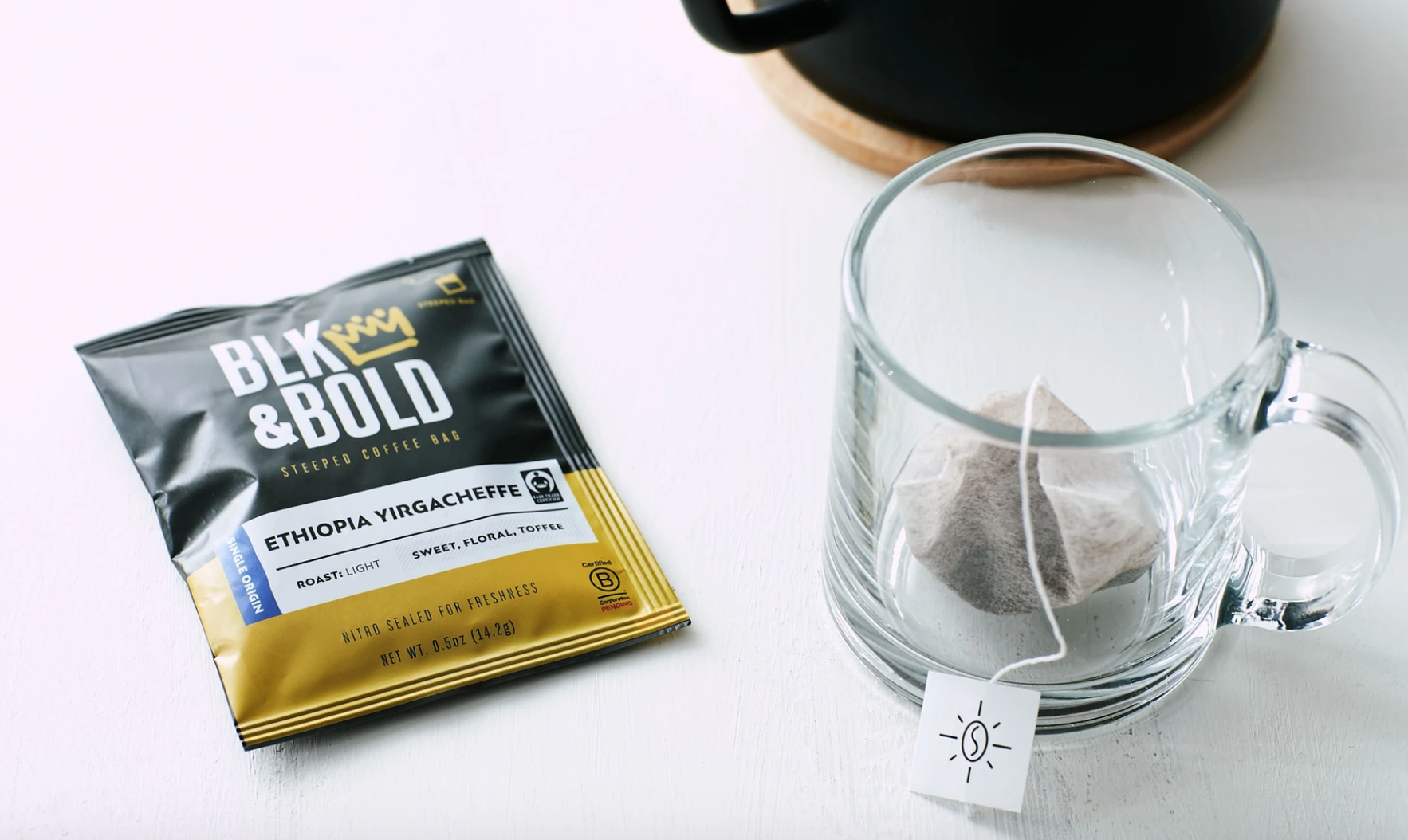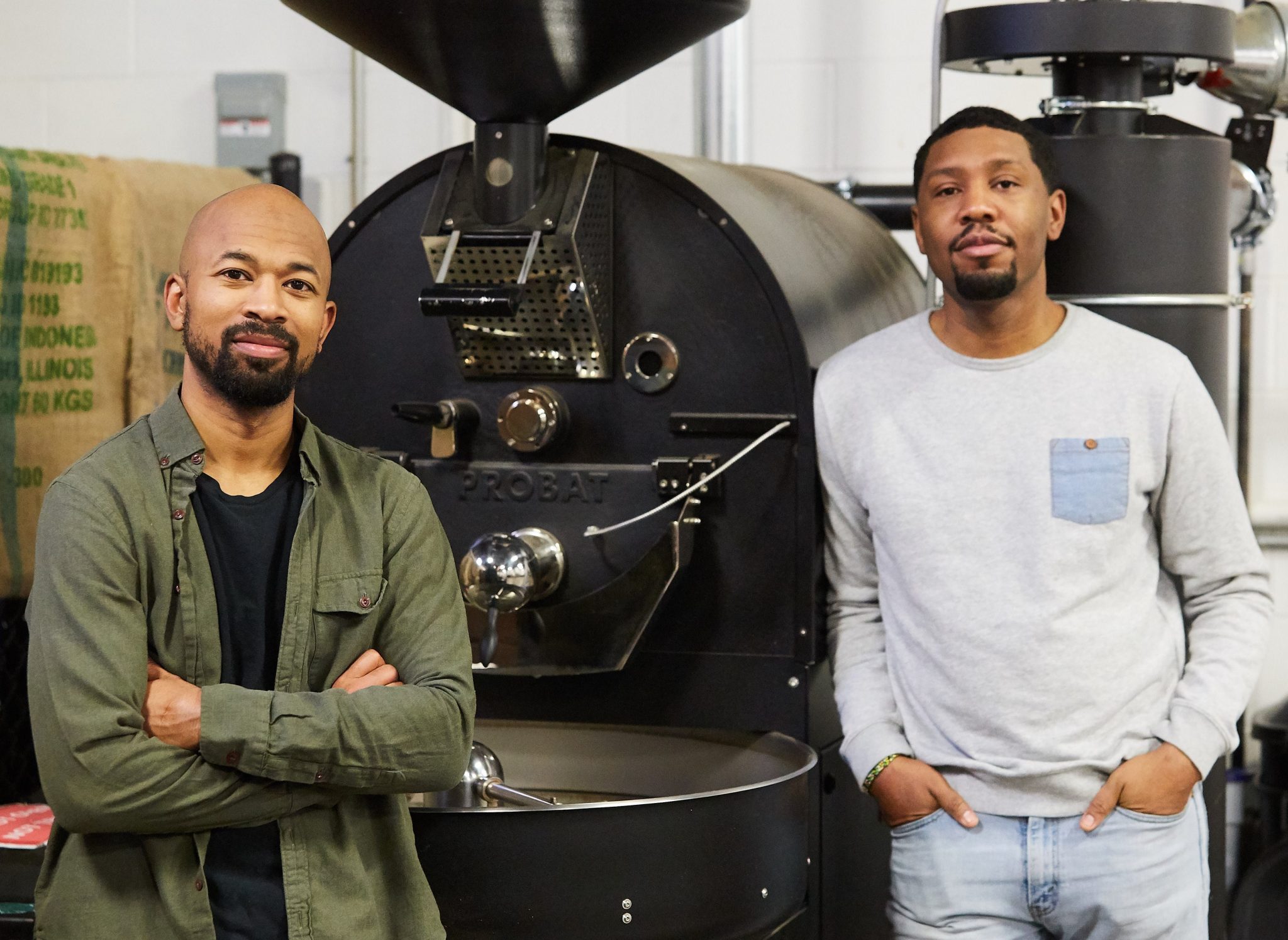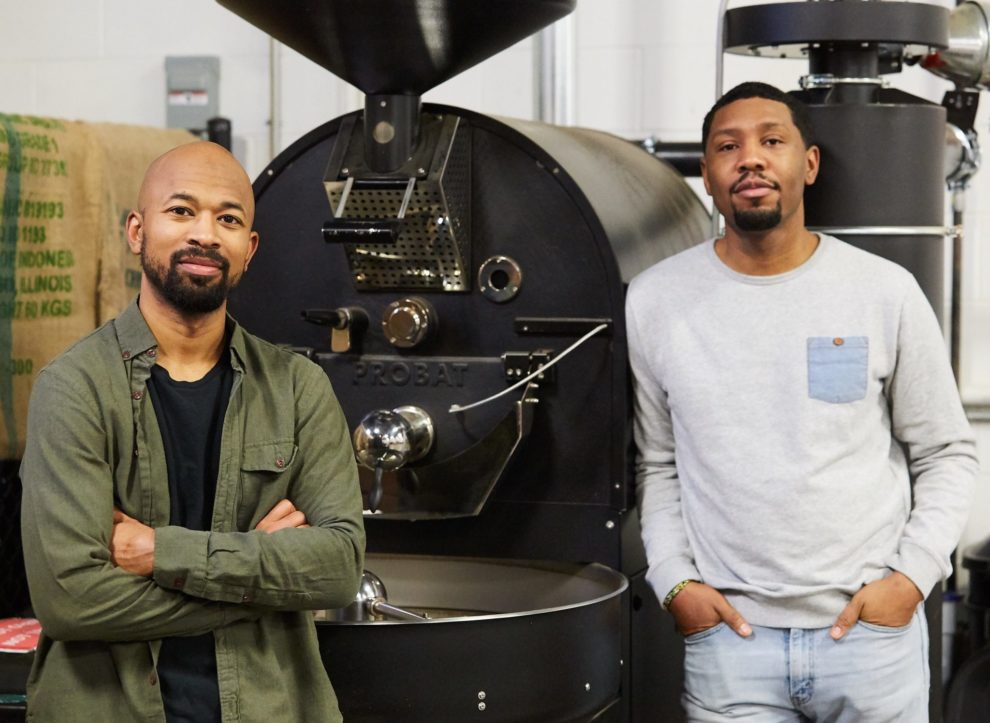Rod Johnson and Pernell Cezar, the co-founders of BLK & Bold, joined The Final Round to discuss the mission behind their speciality coffee brand. BLK & Bold, the first black-owned, nationally distributed coffee brand, is challenging coffee kingpins like Starbucks and Peet’s with a socially-conscious business model aimed at supporting at-risk communities.
‘The opportunity is in everyday grocery aisles’
Johnson and Cezar are childhood friends with a self-described “entrepreneurial itch” that was sharpened by their respective careers: Johnson worked in fundraising, higher education, and health care, and Cezar in merchandising and retail.
The pair – who grew up on the same block in Gary, Indiana – quit their jobs a year ago to support BLK & Bold’s business full-time. It was a risky move because neither Johnson nor Cezar had any experience in the coffee industry, despite being “overenthusiastic consumers,” but they saw a need for more African Americans in the industry.
“That really was the reason why we decided to embark on this entrepreneurial endeavor,” says Johnson. “Foremost, really, because we wanted to have representation on the other side of the counter; wanted to make sure that, considering how much we drink coffee as a culture, that there’s again that representation as merchants as well.”
Cezar saw other opportunities — expanding people’s knowledge of specialty coffees. “The opportunity is in everyday grocery aisles,” he said. “When you look at specialty coffee … there’s specialty coffee on so many corners, right, across the U.S. But if you’re not going into those coffee shops; you’re not really getting educated about specialty coffee. You’re not getting introduced to that experience of the product. [There’s] still an opportunity for retailers in grocery to expand there.”

Coffee with a cause
BLK & Bold touts what Cezar describes as a “domestic social impact model,” which the pair agree is “the heartbeat” of their business.
Five-percent of BLK & Bold’s profits are donated to charitable initiatives, ranging from workforce development to supporting at-risk youth. The mission, Johnson says, appeals especially millennial customers.
“Millennial consumers are looking to invest in companies that resonate with them on a more personal level,” Johnson said. “We were very intentional about including that social impact model in what we do. We’ve chosen initiatives and non-profits that range across the spectrum of urban farming, workforce development, or just general at-the-school programming … There is a void of resources for those type of programs, and so having that embedded in what we do was very on purpose.”
Olivia Balsamo is a producer for Yahoo Finance.
More from Olivia:
Jacques Torres on Valentine’s Day, ‘Nailed It’ and his new deal with Costco
Uber and Lyft ‘cut costs at the expense of workers,’ says California lawmaker
Fake news and political ads are bigger problems than hacking
A wealth tax is possible and America needs one
Warren’s wealth tax would solve economic inequality
Read the latest financial and business news from Yahoo Finance
Follow Yahoo Finance on Twitter, Facebook, Instagram, Flipboard, LinkedIn, and reddit.

Stay up to date with recent funding rounds, acquisitions, and more with the Crunchbase Daily.



![Illustration of a guy watering plants with a blocked hose - Global [Dom Guzman]](https://news.crunchbase.com/wp-content/uploads/quarterly-global-3-300x168.jpg)
67.1K Followers